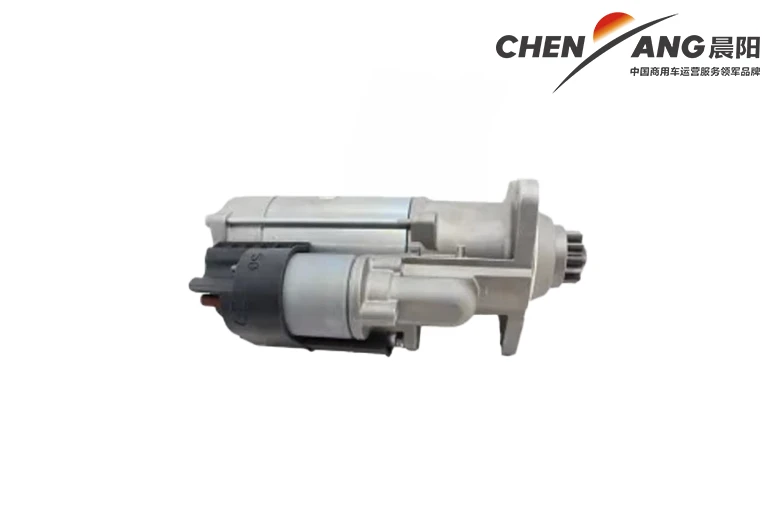Trends and Insights in the Heavy Duty Truck Industry Today
The Heavy Duty Truck Market Trends and Innovations
The heavy-duty truck market plays a pivotal role in the global logistics and transportation industry. These formidable vehicles are essential for moving goods across vast distances, making them critical to economic development and trade. As we enter the new decade, the market is witnessing significant changes driven by evolving technologies, stricter environmental regulations, and shifting consumer demands.
Current Market Overview
As of 2023, the heavy-duty truck market is valued at several billion dollars and is expected to grow steadily over the next few years. Key players in this market include established manufacturers like Daimler, Volvo, MAN, Scania, and Freightliner, among others. These companies are competing vigorously to capture market share by offering innovative products that cater to the evolving needs of customers.
The increasing demand for e-commerce and delivered goods has provided a tremendous boost to the heavy-duty truck market. As businesses focus more on efficient supply chain management, they require trucks that can handle heavier loads and travel longer distances without compromising fuel economy. With the proliferation of online shopping, delivery services have become more critical than ever, leading to higher demand for trucks that can meet these logistical challenges.
Technological Innovations
The heavy-duty truck market is undergoing a technological revolution. Advancements in telematics, electric vehicles (EV), and autonomous driving technology are reshaping the landscape. Fleets are now equipped with sophisticated GPS systems and connected devices that optimize routing, monitor fuel consumption, and enhance overall operational efficiency. These technologies provide real-time data analytics, allowing fleet managers to make informed decisions and reduce operational costs.
heavy duty truck market

Electric heavy-duty trucks are gaining traction as manufacturers strive to meet stringent emissions standards. Companies like Tesla, with its all-electric Semi, and several traditional manufacturers are investing heavily in electric technologies. The shift towards electric trucks is driven by the need for sustainable logistics solutions and the growing concern over greenhouse gas emissions. As the infrastructure for electric vehicles continues to develop, it is expected that more businesses will adopt electric trucks as a practical alternative to traditional diesel engines.
Moreover, advancements in autonomous driving are on the brink of revolutionizing the heavy-duty truck market. Companies like Waymo and Embark are testing autonomous trucking solutions that promise to enhance safety and efficiency on the roads. These innovations could potentially help mitigate driver shortages, which have been a significant challenge in the industry. As regulations evolve to accommodate autonomous vehicles, the integration of these technologies may redefine logistics operations and reduce costs for trucking companies.
Environmental Regulations
Stricter environmental regulations are significantly influencing the heavy-duty truck market, compelling manufacturers to invest in cleaner technologies. The European Union, for instance, has set ambitious targets for reducing carbon emissions, impacting how trucks are designed and produced. The U.S. is also tightening emissions standards, creating a landscape where only eco-friendly or low-emission vehicles will thrive in the long run.
In response to these regulations, manufacturers are exploring alternative fuels such as hydrogen and compressed natural gas (CNG). These alternatives not only reduce emissions but can also provide a viable solution for fleets looking to transition away from diesel without incurring prohibitive costs associated with electric vehicle infrastructure.
Conclusion
The heavy-duty truck market is at a crossroads, driven by technological advancements, increasing demands from the logistics sector, and a pressing need for sustainability. As manufacturers embrace innovation and adapt to regulatory changes, the industry is poised for a transformative shift. The future of heavy-duty trucking looks promising, with innovations in electric and autonomous vehicles leading the charge. Stakeholders who embrace these changes will likely thrive in the evolving landscape, ensuring their place in the cornerstone of global commerce and transportation. As we look to the future, it is clear that the heavy-duty truck market will continue to play an essential role in shaping the economy and addressing the challenges of modern logistics.
-
SINOTRUK HOWO 84 Electric Dump Truck for Eco-Friendly Heavy HaulingNewsJul.26,2025
-
The Fast 16-Gear Manual Transmission Assembly for Heavy TrucksNewsJul.25,2025
-
Mercedes Benz Actros 1848 42 Tractor Truck for Sale - Reliable PerformanceNewsJul.24,2025
-
High-Quality Water Pump Assembly for Sinotruk Trucks – Durable & ReliableNewsJul.23,2025
-
Premium Truck Engine Antifreeze Coolant Fluid for Heavy Duty VehiclesNewsJul.22,2025
-
FOTON View G7 Mini Bus: Affordable & Spacious TransportNewsJul.22,2025
Popular products

























